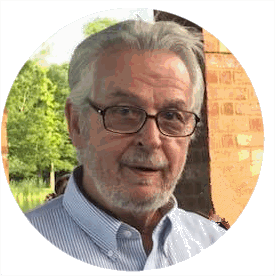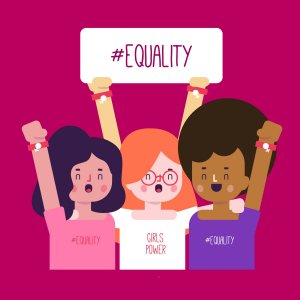
According to a recent survey, a majority of Americans agree that the values of Islam are at odds with American values and way of life, while roughly four in ten disagree. (56 vs. 41 percent, American Values Survey released in November 2015.)
I took courses on statistics and surveys back in my college days and have used surveys occasionally for business purposes. I understand that the way in which a question is asked can automatically skew the survey results towards the desired goals. Hence, the saying that figures do not lie but liars do figure.
Ask me if the religion of Islam is at odds with American values and I would answer, “Not much different than a lot of religions considered to be mainstream in the United States”. However, ask me if Political Islam is at odds with American values and I would answer with a resounding, “Absolutely YES”.
So what’s the difference?
Let me make an analogy. I remember when Catholics were forbidden to eat meat on Fridays in Lent. The church set that rule for its members, which is OK. However if it was the government who decided that no one in the country was allowed to eat meat on Fridays in Lent because the Pope said so, that’s not OK. In the first case the religion decides for its members, in the second case it’s the state that decides for its citizens because of what a church says.
Let’s start with this distinction: ISLAM is a religion; people who follow the religion of Islam are called Muslims and must follow Islamic law. POLITICAL ISLAM is a type of government primarily based upon the enforcement of Islamic Law for all people regardless of their religion. Political Islam uses Muslim doctrines, beliefs, and values as the foundation of an Islamic State. People who believe in Political Islam are called ISLAMISTS.
It is extremely important to clearly distinguish between Islam as a religion and Political Islam (as a government). Unfortunately, these basic distinctions seem to have become blurred by the media as well as by numerous politicians running for public office.
The Kingdom of Saudi Arabia is an Islamic State with a legal system based on Sharia Law. Turkey is a secular country where Sharia Law is not a part of the country’s legal system, and yet most of the population is Muslim.

When I was in Riyadh, the top floor of the mall was reserved for women, but women were not allowed to shop in the main area of the mall unless accompanied by an adult male; at night and on weekends single men were not allowed in the mall. In Istanbul, women can shop wherever they want.
In Riyadh a woman must cover herself in public, it’s the public law; in Istanbul some women cover themselves because of their religious beliefs, and some choose not to.
Please keep in mind that this church/state situation is not limited to Islam. The Republic of Ireland is a Catholic country with Catholic laws. When I lived in Europe, not only was abortion illegal there, it was illegal for a citizen of Ireland to leave the country to have an abortion somewhere else – regardless of their religious beliefs. Only recently has this been changed in Ireland.
In the United States we have enshrined a wall between church and state in our constitution. The Bill of Rights is the collective name for the first ten amendments to our Constitution, which went into effect more than two centuries ago. The separation of church and state was so important it was in the first of these ten amendments.
Not only do we have a legal system that includes emphasis on protecting the rights of citizens to practice the religion of their choice, our legal system also prohibits subversive activity intended to overthrow our way of life as set out in the Bill of Rights.
So, should we be suspicious of immigrants because of their religion?

We have no more reason to fear Muslims than we do to fear any other immigrant group accepted into our country legally. If they have more kids than the traditional American family of European heritage, so be it; in time they may become a majority…and change the laws.
On the other hand, we do have reason to fear Islamists – those who want Political Islam. These people are our enemies and have sworn to overthrow secular governments and create an Islamic State – anywhere and everywhere.
I have traveled and done business across the Middle East, including Kuwait, Qatar, Saudi Arabia, Turkey, and the United Arab Emirates.
In the UAE my company was a key featured element at an annual consumer computer and electronics trade show, exhibition, and conference with average attendance of 150,000 from throughout the Arab World.
My family were invited guests at a wedding in Istanbul. We had introduced the bride and groom to each other who were like family to us. The Turkish relatives treated us like we were family as well, each time we visited the country.
I have had a little bit of exposure to the Islamic world, personal exposure, not just from watching the news.
We need to be vigilant against our enemies. Our government has done a lot to prevent terrorists and terrorist attacks here in the homeland. Our government has also made an awful lot of mistakes in screening for security threats. Most of these mistakes were made when the appropriate information was available, just overlooked.
With the Muslim immigrants proposed to be brought to the United States, including here in Texas, there apparently is no such appropriate information to be used for screening. How is the government going to distinguish between Muslims who believe in Islam and Islamists who believe in Political Islam? And to do that with 10,000 individuals? I don’t believe that our government is capable of doing that, especially as demonstrated by the present administration.
According to CBS News, Tashfen Malik passed a Department of Homeland Security counterterrorism screening as part of her vetting to obtain a visa – just last year )2014). The Los Angeles Times reported that she was given a conditional green card, and the FBI also conducted a background check. Malik and her husband, Syed Rizwan Farook apparently carried out the Wednesday attack that killed 14 people and injured 21 more at a holiday party in San Bernardino County California.
It is not the religion that is scary; it is the Islamists who believe that subversive activity (aka terrorism) is a necessary tool to achieve a global Islamic State.
Because we cannot truly be assured that we are not allowing more terrorists into our country, we should be looking to provide help and assistance to refugees from the Middle East in the areas of their own homeland and not in Texas or elsewhere in the United States.
Today the media talks about “Muslim Majority nations” rather than “Islamic States”. this is an injustice to the American people. There is a great difference in the governments of Saudi Arabia and Kuwait as opposed to Turkey or other secular states with a Muslim majority. Don’t let the media change the facts.
Those of you that agree with me, please tell your representatives in Washington how you feel. Before it’s too late.
J. David Derosier consults with small business on planning and marketing issues, and provides web design and hosting services through OhainWEB.com, an accredited business with the Better Business Bureau that is rated A+ by BBB. He can be reached at JDAVID@Strategy-Planning.info
This article was first published in The Orange Leader in November 2015.


 So next time you drive past a refinery or a petrochemical plant, you would be safe in saying, “It’s just a Big Still”.
So next time you drive past a refinery or a petrochemical plant, you would be safe in saying, “It’s just a Big Still”.






 One of the fastest growing defenses against hackers and malware is “deception”.
One of the fastest growing defenses against hackers and malware is “deception”.


 Take, for example, a “rider” attached to a bill in the legislature (state or federal). According to Merriam Webster Dictionary, in legislative procedure, a rider is an additional provision added to a bill or other measure under consideration by a legislature, having little connection with the subject matter of the bill.
Take, for example, a “rider” attached to a bill in the legislature (state or federal). According to Merriam Webster Dictionary, in legislative procedure, a rider is an additional provision added to a bill or other measure under consideration by a legislature, having little connection with the subject matter of the bill.
 n years later and the family is still there. The house looks better than it had in years. The owner has become my friend; he moved his way up at work and now supervises a large number of his fellow workers. After hurricane Ike, he came over and helped me clean up my property and fixed a downed fence. I was invited to celebrate his daughter’s quinceañera. For me that was a great honor to join his family like that. This man is humble, but to me he is the epitome of honesty, integrity, and goodness. We need more people like him, people that cast a big shadow.
n years later and the family is still there. The house looks better than it had in years. The owner has become my friend; he moved his way up at work and now supervises a large number of his fellow workers. After hurricane Ike, he came over and helped me clean up my property and fixed a downed fence. I was invited to celebrate his daughter’s quinceañera. For me that was a great honor to join his family like that. This man is humble, but to me he is the epitome of honesty, integrity, and goodness. We need more people like him, people that cast a big shadow.